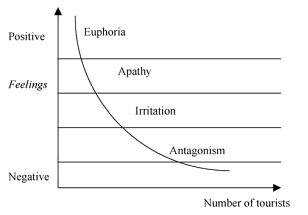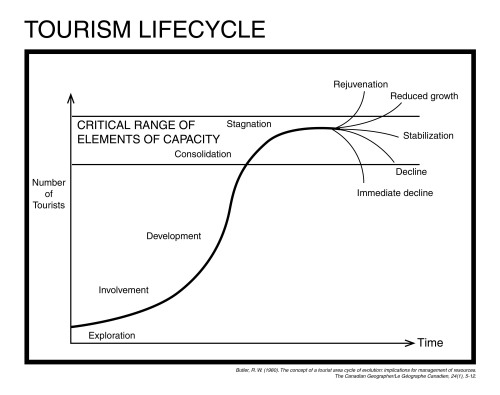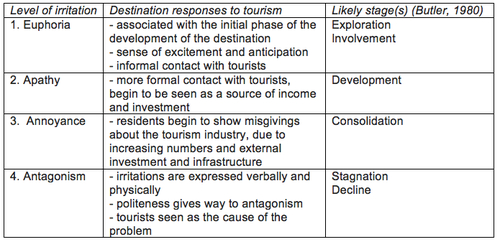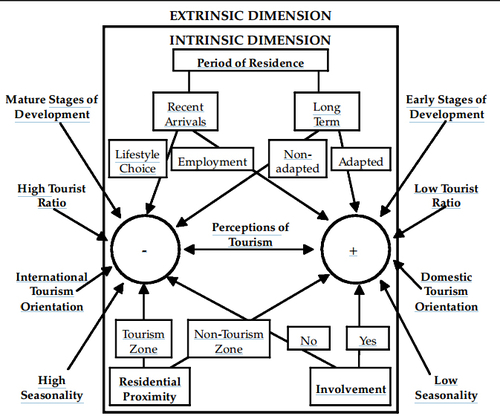The host-guest relationship is one of the main factors that influence the social-cultural aspect of tourism. Tis relationship is very important in order to make sustainable transitions possible and establish relationship of trust.
The Doxey's Irridex Model (Fig.1) suggests that: residents’ attitudes toward tourism may pass through a series of stages from “euphoria,” through “apathy” and “irritation” to “antagonism”, as perceived costs exceed the expected benefits.

Fig.1 The Doxey's Irridex Model
This model can be related to the model proposed by Butler, where he explains the lifecycle tourism that leads or to decline or to rejuvenation (Fig.2).
Fig. 2 Tourism lifecycle according to Butler
The combination of these two models explains key points and connections between level of irritation and destination response to tourism (Fig.3).
Fig. 3 Irritation index table according to Butler and Doxey reseraches
Journal of Sustainable tourism specifies extinsic and intrinsic factors that affects the resident and tourist relations (Fig.4).
Fig.4 Factors affecting resident reactions to tourism


